
Kirkus Reviews will close at the end of the year. From LA Times, "Kirkus was founded in 1933 and was published biweekly. It relied on a small staff and an army of freelancers who reviewed about 5,000 books a year three months before their publication dates. Authors looked to Kirkus reviews to test how their books would be received; libraries and independent bookstores turned to them to decide what to buy."
I didn't realize until now how well-respected the book reviews by Kirkus have been, since Kirkus did not hesitate giving bad reviews, "When I was a book publicist, the worst part of my job was having to read a Kirkus review over the phone to an author. 2 cigs before, 2 after,” recalled Laura Zigman, an author and former book publicist for Alfred A. Knopf, in a Twitter post.
To express my sadness at the closing of Kirkus, I post here a review of When the Rainbow Goddess Wept, published in Kirkus Reviews, July 1, 1994.
When the Rainbow Goddess Wept by Cecilia Manguerra Brainard (first published by Dutton, current publisher is University of Michigan Press)
"A fast-paced,sensitively written first novel about the psychological damage war wreaks, seen through the eyes of an intelligent resilient young girl.
During WWII, as Japanese forces invade her native city of Ubec in the Philippines, nine-year-old Yvonne Macaraig escapes with her father and mother into the mountains, where they stay in villages whose inhabitants are fighting the Japanese. Yvonne's father, an engineer, joins a guerrilla regiment. In wartime, Yvonne learns, people change. Her mother bears a stillborn baby in the jungle while Japanese soldiers lurk nearby, prevents an enemy soldier from stealing their chickens, and asks Yvonne's father to kill the prisoner of war he takes. Her father refuses, but confesses after he shoots the man for trying to escape that he enjoyed killing him, as revenge for the dead baby. When Yvonne's father disappears on a mission, the girl develops the "practicality" war requires. "I wondered what we would do if Papa were really dead. Would the guerrilleros cast us aside...?" She refuses to give up hope and "learns how to will (her) father to live...centering (her) energy on keeping Papa alive." The author, herself born in the Philippines, skillfully interweaves realistic events with myths of women fighters and goddesses, as well as fantastic dreams. She relates dramatic events in an understated way, such as the family's ride up into the mountains on horseback, with a spare horse carrying dynamite, and she enhances her understanding of Yvonne's pre-war world through the use of ironic details: In the Ubec cinema "the roof leaked...From the loge, one could see the movie reflected upside down on the wet floor."
Brainard's appealing characters are larger-than-life people who change before our eyes, yet remain convincing." -
Thank's again Kirkus for this review and I'm sorry you won't be around! Kirkus must have judged the novel correctly because When the Rainbow Goddess is still in print 15 years later.










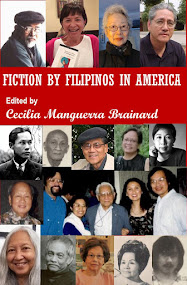



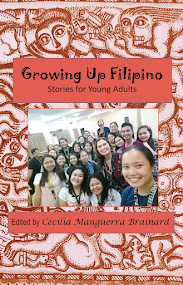
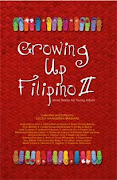


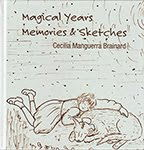


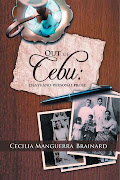



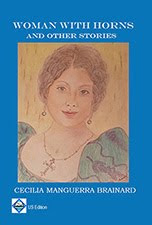

No comments:
Post a Comment